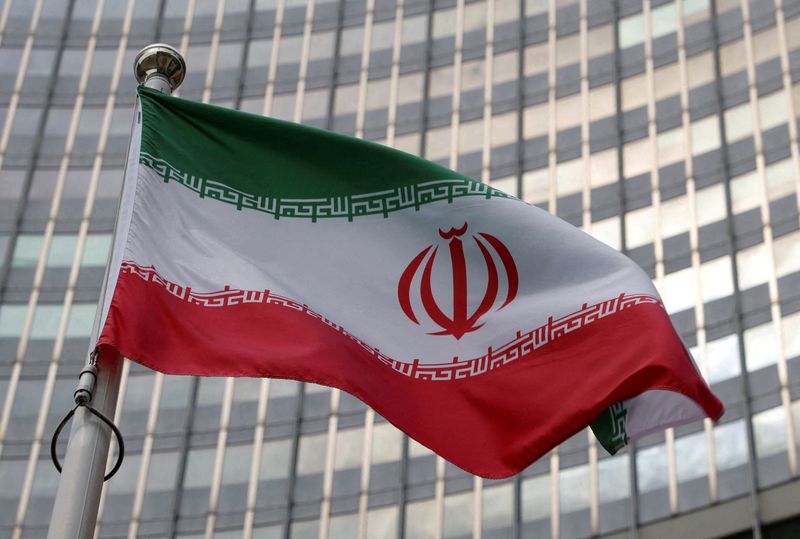By Francois Murphy
VIENNA (Reuters) – The U.S. and three European allies have threatened Iran with another resolution at the U.N. nuclear watchdog’s board demanding action on issues such as explaining uranium traces found at undeclared sites, but left open whether or when they might follow through.
The warning delivered by Britain, France and Germany – the so-called E3 – and the U.S. to a quarterly International Atomic Energy Agency Board of Governors meeting published on Thursday comes as the West’s standoff with Iran has been complicated by secret U.S.-Iran talks.
A November resolution ordered Tehran to cooperate urgently with the IAEA’s investigation into the presence of uranium particles at three undeclared sites, since narrowed down to two.
Western powers have recently condemned Iran for stonewalling the IAEA on that and other issues like the re-installation surveillance cameras removed last year, and for enriching uranium to up to 60% purity, close to weapons grade. But in parallel diplomats say the United States has held secret “de-escalation” talks with Iran, potentially muddying the waters.
Those de-escalation talks, which Washington does not acknowledge, cover issues such as Iran’s recent slowdown of enrichment to 60% purity, frozen Iranian funds abroad, and a prisoner swap, diplomats say.
“If Iran fails to implement the essential and urgent actions contained in the November 2022 Resolution and the 4th March Joint Statement in full, the Board will have to be prepared to take further action in support of the (IAEA) Secretariat to hold Iran accountable in the future, including the possibility of a resolution,” the four Western powers said in a statement to the 35-nation IAEA board.
Iran tends to bristle at resolutions against it and respond by expanding or accelerating its nuclear activities. Iran says its nuclear programme is strictly for peaceful uses. Western powers say there is no credible civilian explanation for it.
The joint statement addressed the re-installation of monitoring equipment such as cameras but only a fraction of the cameras the IAEA wants to put in place have been set up.
Rather than seek another binding resolution against Tehran for the lack of progress on these issues at this week’s IAEA board meeting, however, the Western powers issued a non-binding joint statement with 59 other countries calling on Iran to “act immediately” on issues including explaining the uranium traces.
A total of 22 countries of the 35 on the board backed the statement, fewer than the 26 that supported the resolution in November.
(Reporting by Francois Murphy, Editing by William Maclean)
